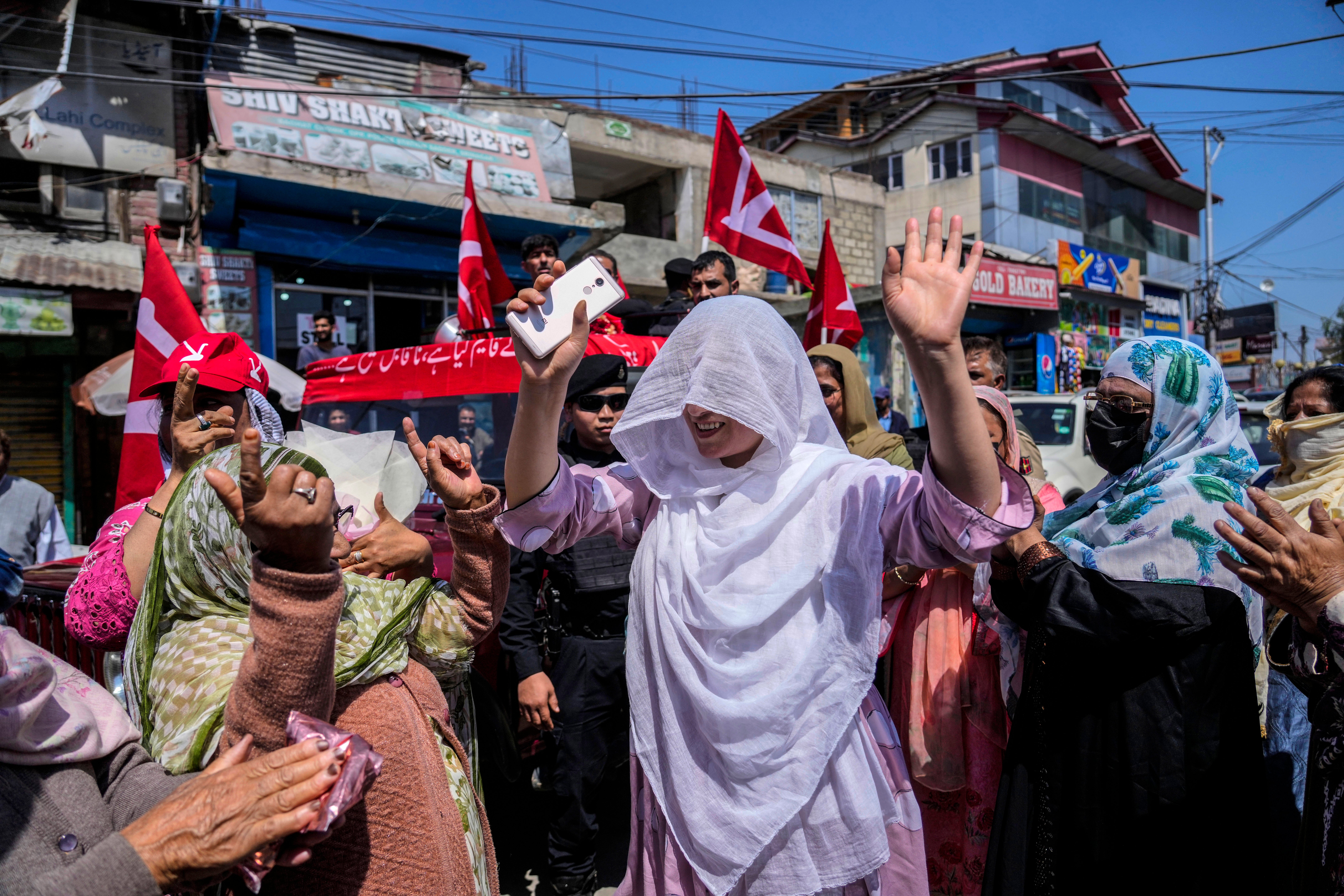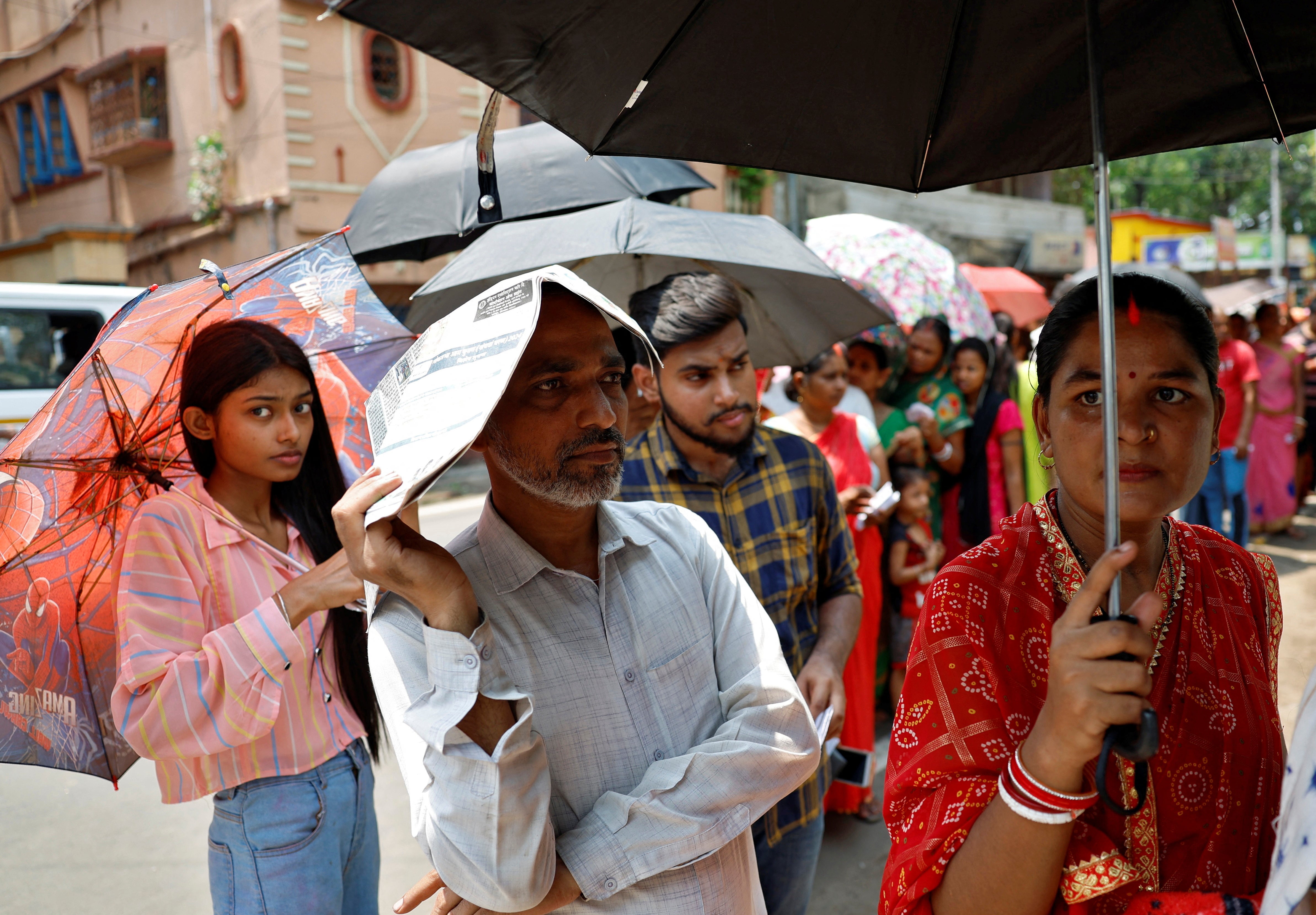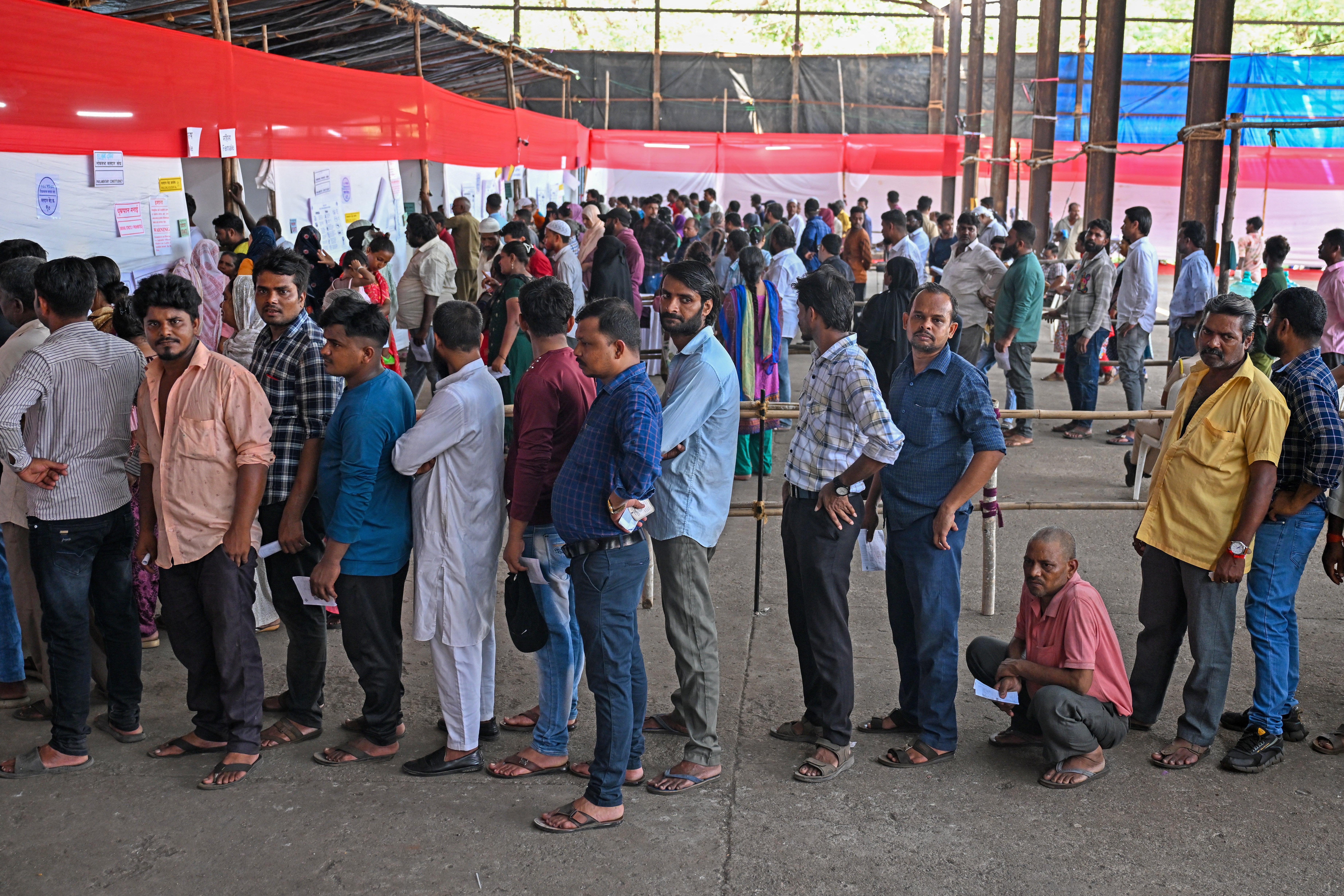Could record election turnout be a turning point for troubled Kashmir?
Despite not fielding any candidates of its own in the region, Narendra Modi’s BJP is claiming high turnouts as a vindication of its controversial Kashmir policies. Maroosha Muzaffar reports on why it is not that simple

Kashmir has witnessed unexpectedly high voter turnout for the ongoing Indian national election, splitting opinion on what it might mean for the conflict-ravaged Himalayan region.
While Narendra Modi’s government is portraying it as an expression of public support for its Kashmir policy, Kashmiri voters, politicians and analysts see it as an assertion of identity and local interests by people who have repeatedly challenged the legitimacy of New Delhi’s rule in the restive region.
In Monday’s voting, the fifth of seven phases in this marathon general election, Baramulla in north Kashmir recorded its highest voter turnout ever, with a constituency that has been notorious for separatist militant activity beating the turnout figures for heartland states of Bihar and Maharashtra.
Nearly 59 per cent of registered voters turned out in Baramulla, almost 20 per cent more than in the previous parliamentary election five years ago.
Voter participation was lower in the main Kashmiri city of Srinagar when it voted on 13 May, but that turnout of 38 per cent was still the highest since 1996, and almost triple the 13 per cent who voted in 2019.
Many Kashmiri Muslims have shunned national elections in the past, with some viewing them as an exercise in legitimising a federal government which they oppose. Separatist leaders and organisations in the region routinely call for boycotts of elections.
After polling closed in Baramulla, Mr Modi portrayed the high turnout as the return of normalcy to restive Kashmir.
In 2019 Mr Modi’s government abolished Article 370 of the Indian constitution that gave a measure of autonomy to Jammu and Kashmir, fulfilling a longstanding demand of his Hindu nationalist backers who regarded it as a way to firmly integrate the country’s only majority Muslim-majority state into the Indian mainstream.

Mr Modi’s supporters also claimed the move would help end the movement for independence in Kashmir which took the shape of an armed insurgency 35 years ago. Although the militancy has long since waned, Kashmir remains one of the most militarised places on the planet.
It is also a nuclear flashpoint between India and Pakistan which have fought three wars over the territory.
But Mr Modi and his home minister Amit Shah claimed the voter turnout in Baramulla and Srinagar as evidence that Kashmir had turned a leaf since the abrogation of Article 370.
“Compliments to my sisters and brothers of Baramulla for their unbreakable commitment to democratic values,” Mr Modi said. “Such active participation is a great trend.”
Mr Shah spoke more bluntly after the polling in Srinagar.
“I would like to tell those who question the abrogation of Article 370 that the rise in the voter turnout from 14 per cent in the past to nearly 40 per cent in Srinagar is the greatest testament to the success of the decision,” he told the news agency ANI.

“All leaders of extremist groups voted. It does not matter for whom they vote. That is their right. But at least, they were part of the democratic process. Earlier, slogans were shouted to boycott elections. Today elections were held peacefully.”
Kashmiri voters read the numbers differently. The 30 per cent polling in Srinagar, they noted, was only half of the turnout recorded in 1984, the last national election before the eruption of the armed rebellion.
One reason for the relatively high turnout in 2024, they said, was that Kashmir has been without an elected government since 2018. The last government was felled after Mr Modi’s BJP withdrew from a coalition with a regional player, the People’s Democratic Party.
The following year, alongside the abrogation of Article 370, Mr Modi’s government split the state of Jammu and Kashmir into a pair of territories ruled directly from New Delhi and threw mainstream politicians, activists, journalists, students and separatists in prison.
This created a political vacuum that some voters sounded motivated to fill.
Many voters who had previously shunned elections also turned out to express discontent with the Indian government’s actions since August 2019.

“We have not achieved anything from boycotts or choosing other means of protests to express our dissent. Many of my friends, neighbours are languishing in jails for years now, nobody cares for them,” Haroon Khan, who voted in Srinagar’s Nowhatta, told Al Jazeera.
“The purpose I voted today was to choose my local Kashmiri representative who can speak on behalf of us to India. I want my friends to be released from jails.”
“Today,” he added, “Kashmiris have lost their identity. We are being ruled by outsiders.”
The BJP has not fielded a candidate in any of the three constituencies in the Kashmir valley. The local parties that are contesting have chosen to campaign on a plank of restoring statehood rather than talking about jobs and infrastructure.
Professor Noor Ahmad Baba, a Kashmiri political scientist, told The Independent that the voter turnout in Srinagar and Baramulla showed a rejection of the BJP’s attempt to control the political narrative in Kashmir, not least by undermining regional parties like the National Conference and the People’s Democratic Party.
“If the BJP thinks that higher voter turnout is a vindication of their actions in Kashmir, why did the party not field any candidate of their own?” he asked.
The BJP, he argued, did not have confidence in the Kashmiri voter.

“If they had achieved so much and people were happy then they should have vindicated their position by contesting.”
The BJP stayed away from the field even though, unlike almost always in the past, there was no boycott call from the Hurriyat Conference, the main separatist organisation that has been greatly weakened since 2019.
But, Prof Baba noted, political parties that are seen to enjoy the backing of the BJP, like the Apni Party or the People’s Conference, have been labelled “proxies” of the ruling party.
The ongoing election is “a referendum against the government’s decisions and policies that were implemented without any public consent”, said Waheed Ur Rehman Para, People’s Democratic Party’s candidate in Srinagar.
“If people were happy with the abrogation of Article 370, the BJP would not have hesitated to fight. But they don’t want to expose themselves and to save face, they have decided not to contest,” said Omar Abdullah, the National Conference’s leader and the party’s candidate in Baramulla.
Prof Baba made another point. “I am getting reports that one candidate named Engineer Rasheed in Baramulla has received massive support, even though he is in jail.”

“Rasheed has been incarcerated by the present regime” since 2019 and the support he has received reflects a protest against the BJP, he said.
“The voter turnout indicates discontent with the BJP’s influence and a desire for representation that opposes their actions in Kashmir.”
Another reason for the record turnout could be the participation of the minority Hindu community in Srinagar.
“For the first time more than 40 per cent of the displaced Kashmiri Pandits voted in the election. Till today the figure has never crossed three per cent,” Mr Shah said. “This shows that people are now confident and believe in democracy.”
Join our commenting forum
Join thought-provoking conversations, follow other Independent readers and see their replies
Comments
Bookmark popover
Removed from bookmarks